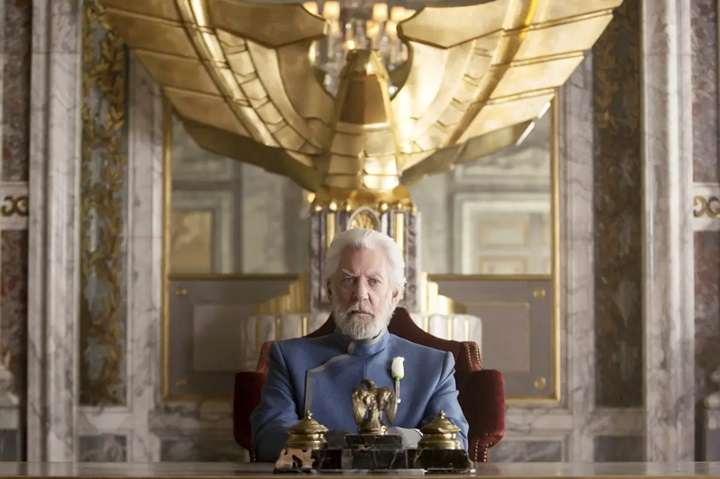When people think of The Hunger Games trilogy, they might picture Katniss Everdeen’s fierce survival instincts, Peeta Mellark’s undying loyalty, or the haunting image of the deadly arena. But behind all the horror and manipulation stands a figure who personifies the series’ darkest themes of power, control, and corruption—President Coriolanus Snow. His cold demeanor, manipulation of the system, and ruthless tactics make him one of the most memorable villains in modern literature. But who is Coriolanus Snow, and how did he become the symbol of oppression in Panem?
This article will explore the life of Coriolanus Snow, his role in the Hunger Games saga, and the intricate layers that make him both terrifying and fascinating.
The Early Life of Coriolanus Snow
Before the President: The Rise of a Tyrant
Coriolanus Snow wasn’t always the all-powerful leader we meet in The Hunger Games. Suzanne Collins delves into his origins in her prequel novel, The Ballad of Songbirds and Snakes, revealing how a once-promising, intelligent young man transformed into a despot. Born into a once-prestigious family, Coriolanus grew up during a period of economic and political turmoil in Panem. His family, once wealthy and influential, had fallen on hard times after the First Rebellion, and the young Coriolanus faced pressure to restore the Snow family’s prominence.
From an early age, Snow exhibited ambition and a desire for control. Despite his family’s diminished status, he maintained a façade of confidence, determined to rise through the ranks of Capitol society. His participation in the mentorship of tributes during the 10th Hunger Games offers readers a glimpse into his cunning and strategic mind. Even as a young man, Coriolanus understood the importance of manipulating people and situations to his advantage, foreshadowing the ruthless leader he would become.
Snow’s Role in the Capitol: A Man of Power and Influence

From Mentor to Mastermind
As Coriolanus Snow climbed the political ladder in the Capitol, his ambition and shrewdness became his defining traits. By the time he ascended to the presidency, Snow had perfected the art of political manipulation. He maintained control over the districts through a combination of fear, spectacle, and the brutal annual Hunger Games. Snow understood that power wasn’t just about force—it was about psychological dominance. The Hunger Games weren’t merely a punishment for the districts; they were a tool to remind the people of Panem that rebellion was futile.
Snow’s ability to play the long game is one of his most terrifying characteristics. He is not prone to impulsive decisions or emotional outbursts. Instead, he calculates every move, ensuring that his position remains unshakable. His relationship with other Capitol elites, particularly his alliance with the Head Gamemaker Seneca Crane, underscores his manipulative nature. Snow uses others as pawns, discarding them when they no longer serve his interests.
Snow and Katniss: A Deadly Game of Cat and Mouse
The Mockingjay vs. the Serpent
President Snow’s relationship with Katniss Everdeen is central to the Hunger Games trilogy. From their first encounter, it’s clear that Snow sees Katniss as a threat—not just to his reign, but to the very fabric of the Capitol’s control. Katniss, with her defiant spirit and ability to inspire hope, becomes the embodiment of everything Snow fears. However, rather than directly confront her, Snow seeks to manipulate her into submission, using her love for her family and friends as leverage.
One of the most chilling aspects of Snow’s character is his methodical destruction of those who oppose him. He doesn’t simply kill his enemies—he breaks them. In Katniss’s case, Snow plays psychological games, making her question her own moral compass. His decision to bomb District 13 and frame President Coin for the death of children, including Katniss’s sister Prim, showcases his willingness to go to any lengths to maintain power. Snow’s manipulation of Katniss forces her to make impossible choices, turning her into a pawn in a much larger political game.
Poison as a Symbol: Snow’s Weapon of Choice
The Deadly Kiss of Death
One of President Snow’s most defining traits is his use of poison to eliminate his rivals. Throughout the series, it is revealed that Snow has orchestrated the deaths of numerous political adversaries by poisoning them. This method of assassination reflects his preference for indirect violence—Snow doesn’t engage in physical combat, but he ensures that those who cross him meet a slow, painful end. His knowledge of poisons is extensive, and he often drinks from the same poisoned cup as his victims to avoid suspicion, later using antidotes to save himself.
However, the poison has left its mark on him, both literally and metaphorically. Snow’s breath is said to carry the scent of blood and roses, a result of the sores caused by his prolonged use of poison. The roses, which he uses to mask the stench, become a recurring motif throughout the series, symbolizing his dual nature—beautiful on the surface, but deadly beneath.
The Fragility of Power: Snow’s Downfall
The Revolution and the Collapse of the Capitol
Despite Snow’s iron grip on Panem, his power is ultimately fragile. The districts’ growing unrest, coupled with Katniss’s rise as the Mockingjay, sets the stage for a full-scale revolution. As the rebellion gains momentum, Snow’s carefully constructed world begins to crumble. His decision to allow Peeta to be tortured and brainwashed, and his increasingly desperate attempts to maintain control, reveal the cracks in his façade.
In the end, Snow’s downfall comes not at the hands of Katniss, but through the very system he helped create. The people of Panem, inspired by the rebellion, turn against him, and his manipulation of President Coin is exposed. Snow’s ultimate defeat is a testament to the idea that even the most powerful tyrants can’t escape the consequences of their actions.
Snow’s Legacy: A Symbol of Tyranny and Oppression

The Lasting Impact of President Snow
Even after his death, Coriolanus Snow’s legacy looms large over Panem. He represents the dangers of unchecked power, the insidious nature of political manipulation, and the cost of maintaining control through fear. His use of the Hunger Games to suppress rebellion, and his willingness to sacrifice anyone to maintain his hold on the Capitol, make him one of the most feared and despised figures in Panem’s history.
Yet, Snow’s character is not one-dimensional. His complexity lies in his understanding of human nature and his ability to manipulate people’s desires and fears. He knows that rebellion isn’t just about weapons and soldiers—it’s about ideas, and he seeks to control those ideas by any means necessary.
The Role of Villainy in The Hunger Games
Why Snow is Essential to the Story
President Snow’s role in The Hunger Games is more than just that of a villain. He is a symbol of the oppressive systems that keep people in line, the figurehead of a society that thrives on inequality and suffering. Without Snow, the stakes of Katniss’s journey would not be nearly as high. His presence forces her to confront not only the physical dangers of the arena, but the moral and ethical dilemmas of living under a dictatorship.
In many ways, Snow is the perfect foil to Katniss. While she represents hope, rebellion, and the possibility of change, Snow represents the status quo—the ruthless desire to maintain power at any cost. His manipulations and control over the media, the Games, and the people of Panem serve as a stark reminder of how totalitarian regimes operate.
Related Post:
Exploring “Run 3 Unblocked Games”: A Cosmic Adventure
The Ultimate Guide to Tomb Raider Games in Order: A Journey Through Lara Croft’s Legacy
The Cast of Love Island Games: Meet the Vibrant Personalities Behind the Show
Coriolanus Snow is a character whose villainy is rooted in his intellect, ambition, and ruthless pursuit of power. He is a master manipulator who understands that control is more about psychological domination than brute force. His use of the Hunger Games as a tool for maintaining order, and his ability to exploit the weaknesses of those around him, make him a formidable adversary.
However, Snow’s greatest strength is also his greatest weakness. His obsession with control ultimately leads to his downfall, as he underestimates the power of hope and rebellion. In the end, Snow’s legacy is one of fear and tyranny, but his downfall serves as a reminder that even the most powerful figures can be brought down by the collective will of the people.
President Snow will forever be remembered as one of the most iconic villains in modern literaturea man who, despite his intelligence and cunning, could not escape the consequences of his own tyranny.


